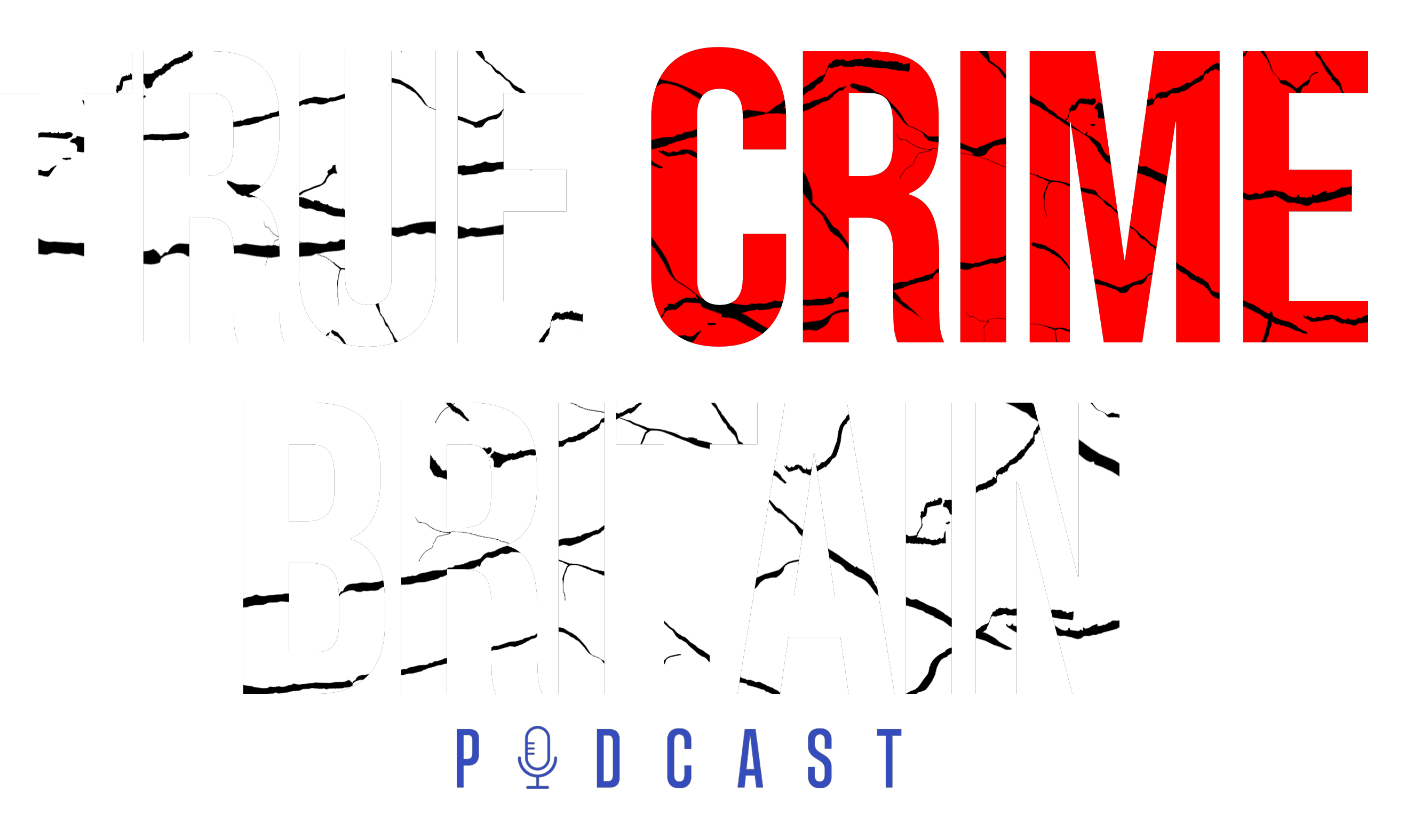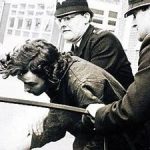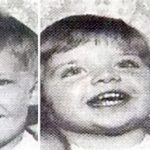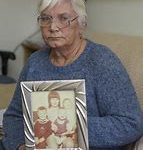
Episode 28 – The Monster of Worcester – David McGreavy
On a cold and wintery night in Worcester England, neighbours hear high-pitched screams pierce through the tranquil darkness. Even to the untrained ear, the screams sound as if they are coming from terrified children. Neighbours peer through their blinds in the direction of the screams. They are coming from the usually quiet home of Elsie and Clive Ralph – But nothing appears out of place at the home. A cautious neighbour decides it’s better to be safe than sorry and decides to call Police just in case one of the children is in trouble.
Uncannily and perhaps forebodingly, it was the night of Friday the 13th. For all of the superstition that the date entails, no one could have predicted the horrors that would become evident in the night’s lifting gloom.
It was Friday the 13th of April 1973 – a date which will forever be known as the birth of The Monster of Worchester. A night when a city – and indeed a country – came face to face with the worst kind of monster – a child killer.
Worcester England sits just 30 miles southwest of Birmingham and is flanked on the western side by the River Severn. It is known as a cathedral city due to its numerous ancient cathedrals spanning every style of architecture imaginable. Most notably of which is the Worcester Cathedral which has proudly overlooked the city since the early 1500s.
Whilst Worcester’s relatively small population of just over 100,000 residents might make you think it doesn’t have a lot going for it – it is in fact the birthplace of many familiar products and people. Have you ever enjoyed the taste of Worcestershire sauce? well, as the name suggests, Worcester is the birthplace of the original variety made by the one and only Lea and Perrins. Then there is Berrow’s Worcester Journal which is believed to be the oldest newspaper in the world. For all its small-town qualities, Worcester packs a punch.

For more horrifying true crime stories, please click below:
Archives
It was in Worcester in 1951 that David Anthony McGreavy was born to Bella and Thomas McGreavy. They were loving and devoted parents and in particular Bella who flourished as a hands-on mother. Thomas was a sergeant in the Royal Signals and therefore David’s early years were spent moving from military base to military base and country to country. Despite changing schools frequently and having to make new friends at each stop- the disruptions didn’t seem to bother David or his five siblings. The children actually seemed to thrive as they travelled. Life on an army base could be quite regimented but Bella ensured the children spent plenty of time exploring the differing landscapes of the places they lived. David in particular loved to ride his bike and would spend long hours away from home, returning only as the sun was setting or in the case of Thomas’s posting in Germany – when snow began to fall. Those were the days when children roamed freely – unaware of the dangers which could be lurking in your very own community.
In the 1960s as David reached his teen years he decided to follow in his father’s footsteps and join the Royal Navy. Bella and Thomas were concerned David wasn’t yet mature enough to make such an important decision on his own. Whilst they were supportive of his plans to enlist – they encouraged him to finish high school first. But David wouldn’t have it. He was a self-assured and stubborn young man, determined to prove his maturity and intelligence. Within days of discussing the plan with his parents, he dropped out of school and enlisted in the navy. It was 1967 and David was just 15 years old.
He was initially posted to Portsmouth Naval base where he boarded the HMS Eagle and began work as a steward in the mess hall. He was responsible for clearing the mess tables and general kitchen duties. But David always felt the work was beneath him and the job thoroughly bored his active mind. He’d joined the navy to become a man, to be respected as an adult and here he was cleaning up after other men instead. Surrounded by a culture of drinking to excess and with the growing resentment of his humiliating position David began using alcohol to feel the confidence and bravado he wasn’t able to demonstrate during the day.
Given his inexperience with alcohol, it didn’t take long for his drinking to become problematic. David began to turn up late for his duties. His uniform wasn’t maintained and he would complain of terrible hangovers. His evening drinking sessions morphed into foul-mouthed rants about this officer and that officer and how hard done by he was. He would go one and one about how he was so much better than being a steward. His cocky attitude and determination to get the last word began to get him noticed – and not in a good way.
Initially, he was given warnings and when that didn’t deter his behaviour he would be assigned extra duties as restitution. But the punishments didn’t have the desired effect of improving his attitude or teaching him a lesson. Rather, they seemed to have the opposite effect. His drinking got worse and more frequent, his behaviour deteriorated and David began to be destructive. During a particularly bad session, David broke into an officer’s ward room and lit a basket of paperwork on fire.
David ran from the room closing the door behind him. The fire spread rapidly in the small space and smoke began to swirl out from under the door. David stood drunkenly in the hallway as he watched the wisps of smoke silently spread down the hallway. In a moment of lucidity, he realised the fire was getting out of control and raised the alarm. It was 2.30 in the morning and the alarm awoke the entire barracks. As his fellow navy men were dragged from their slumber, David panicked and tried to return to his bunk in an effort to hide from what he had done.
Once the fire was extinguished – officers set about investigating what had caused the blaze. When it came time to question David he claimed he was innocently walking past the wardroom when he saw smoke and raised the alarm. As officers pressed him for more information David’s story changed – this time he told the investigators that he had accidentally dropped a cigarette into the bin which had subsequently caught on fire. David’s senior officers were unconvinced of his explanations. Taking into account all the warnings he had received prior to the fire incident they decided enough was enough and he was put forward for a court martial.
David was found guilty of negligence and sentenced to 90 days of detention. He was also required to undergo psychiatric testing to determine if his behaviour was induced by some mental condition. Whilst the results were never revealed to David they did result in him being court-martialled. After just four years of service, David’s turbulent navy career was officially over.
To his great shame, David was forced to return to live with his parents in Worcestershire.
During the last few months of his service, David had started a relationship with a woman named Mary. Whilst they exchanged letters twice a week they had never met face to face. Upon being discharged from the Navy David was finally able to make arrangements to meet Mary in person. From that very first sight at a local dance hall, David knew Mary was the one. She was beautiful and smart but more importantly – she put up with David’s drinking. And his alcohol-fuelled outbursts had only worsened since he was forced to leave the navy.
Just one week after meeting Mary for the first time in person, David proposed and asked her to marry him. Mary gleefully accepted the proposal as she too was in love with David. But once again David’s parents urged caution. David was just 20 years old and his parents didn’t think he needed to rush into marriage. And Bella was concerned that Mary wasn’t the right fit for David. Mary had some medical problems and Bella worried that she would become a burden to David. And besides David hadn’t had a stable job since leaving the navy and he wasn’t in a position to financially support himself let alone anyone else.
Keeping true to his nature – David did not listen to the advice of his parents. He was besotted with Mary. She was the one thing that was going right in his life and he was determined to give Mary the life she deserved. He knew he could finally be free of his parents once they married and so following their hasty engagement, David wooed Mary with plans for a grand wedding followed by a romantic honeymoon.
But Mary was getting cold feet. Her family didn’t approve of David. Not only for the fact that he had no job and couldn’t support Mary or her complex medical needs, but word had also gotten around the tight-knit community that David had been court-martialled. He also came across as an arrogant know-it-all and they believed Mary could do better. In contrast to David’s relationship with his parents, Mary heeded her mother and father’s advice and called off the engagement on New Year’s Eve, just weeks before they were to be married.
Waking on the 1st of January 1972 David was broke, unemployed, single and living with his parents.
What was once arrogance and ego began to twist into bitterness and resentment. David spent days inside, rarely leaving his parent’s house. Thomas and Bella would organise odd jobs for David through friends but they all ended in disaster. David wouldn’t turn up or would leave the job half done. He complained about the work being below him and he demanded higher wages. After each failure he’d return home, stealing liquor from his father’s cabinet and drinking himself into a stupor. He wouldn’t help with chores and without a job, he wasn’t able to contribute to the household financially.
Finally, after months of frustration and with no change in sight, Bella and Thomas were left with no choice but to throw David out of the family home.
**
And so it was that David moved into the home of Clive and Elsie Ralph. Clive had attended school with David for a while whilst Thomas was stationed in England. It had been a few years since the men had seen each other but Clive was a kind and generous man who wanted to help his friend through the difficult patch he seemed to be experiencing.
Clive and Elsie had been school friends though there was a 5-year age gap between them. They had married when Elsie was 16 due to her being pregnant with Clive’s child. By the time David moved in they had two small children and Elsie was pregnant with a third. Clive was a lorry driver for his father’s company. He had a strong work ethic and worked long hours to provide for his growing family.
Their home was a small two-bedroom flat in the Rainbow Hill district of Worcester. The area was just two miles from David’s parents’ home. In the early 1970s, it was rapidly becoming an industrious neighbourhood though it was desperately trying to retain its sense of community, especially on Gillam street where the Ralphs lived. As residents were forced out of the surrounding areas the occupants of Gillam street drew closer. It was a quiet cul-de-sac of just 10 homes and there were children living in almost every residence. Each afternoon front doors would fly open and children would run and play around the street together whilst their parents went about their duties. The neighbours all knew each other and took care to watch over the children as they played.
The couple’s firstborn was Paul and he was three years old when David arrived. Dawn was 20 months old and baby Samantha was born in September of 1972. Samantha slept in the bed with her parents, Dawn was in a cot in the main bedroom and David and Paul shared the cramped second bedroom.
Whilst the arrangement might have seemed strange to others it worked well for the couple. Clive’s work kept him away from home for weeks at a time. David was like a second set of hands while Clive was working. He assisted Elsie with childcare and cooking and despite not having a job he paid six pounds per week in board.
David was good with the children and he genuinely seemed to enjoy being around them. He had grown up with four younger siblings and naturally seemed to relate to them in a way other adults did not. For hours he would entertain them while Elsie went about her homemaker duties. David played all the usual silly games of the time. He would bounce one or two of them on his knees, play hide and seek long into the evening and chase the children of the neighbourhood as they squealed and giggled in delight.
After a while, David had become a regular sight around the neighbourhood. He would keep the children in the street occupied while their parents’ made dinner or tended to the gardens. Whilst he had a reputation as a bit of a know-it-all otherwise, most residents considered him harmless.
Despite seeming to have improved in mood and attitude since arriving at the Ralph household, David’s behaviour when he drank remained unchanged. He was still prone to loud outbursts and aggressive behaviour when he drank. He was well known at the local police lockup after regularly getting picked up for being a nuisance at his favourite drinking spots. As was typical at the time in small communities – his father would be made aware of David’s antics and would be asked to bail him out or collect him after a bad session. Time and again he tried to convince David to lay off the alcohol. Unsurprisingly, David refused to listen.
**
When baby Samantha was seven months old, Elsie and Clive decided it would make the most sense if Elsie got a job to bring a much-needed second income into the household. The arrangement with David appeared to be going well and they asked him if he would mind looking after the children more regularly while Elsie returned to work. David was enthusiastic about the idea and quickly agreed to the plan. It appeared that looking after the children and being given some responsibility gave him purpose and made him feel needed.
Clive kept working his regular job while Elsie secured a barmaid position at the local Punchbowl Tavern. It was a perfect setup given the bar was just two miles from their home. The close proximity meant when Clive wasn’t away working he would be able to drop her at the pub and pick her up – leaving David to look after the three children until Elsie returned. When he had the chance, Clive enjoyed stopping in for a quick pint while Elsie locked up the pub. By the time they arrived home, the house would be quiet and David would have put all the children into bed.
**
On the night of Friday the 13 April 1973, Elsie was working a shift at the pub. David knew he needed to be home in time for Clive to pick up Elsie from work but he decided to go out for a drink anyway. He met a couple of friends for a pint at a Vauxhall pub and they began drinking while they played darts and cards. It didn’t take long for David to down six pints of beer and begin to get louder and louder. He started ranting and rambling and then began taunting his mates. He purposely bumped into people as he stumbled to and from the bathrooms, leaving the other patrons less than impressed.
Eventually one of his mates tells him it’s time to go home, they’ve had enough of his antics. David objects and tells the man where to go. By now there’s a bit of a crowd around David and he’s priming himself for a fight. But the friend backs down and walks away, turning his back on David. Rather than calm down himself, David wants to have the last laugh. So he throws his lit cigarette into the friend’s pint, tarnishing it with ash. The friend pushes him back and security ends up removing David from the pub. Minutes later Clive arrives to pick David up and return him to the flat so he can watch the children while Clive picks up Elsie from her shift. He drops David to the flat at 10.15 and heads over for a pint at the Punchbowl Tavern while Elsie locks up.
*
When David enters the flat the children are in various states of sleep. Paul is already tucked in and sleeping while Dawn is in her bed but grizzling. Baby Samantha seems to be uncomfortable and hungry and David has to walk around with her to settle her down.
David is still feeling woozy from his six pints and he’s simultaneously angsty from his run-in with his friend over the cigarette. His patience is wearing thin with the children and his temper is short.
When Samantha refuses to the bottle David has warmed for her he gets frustrated. He attempts to settle her by rocking her. When that doesn’t work and he’s exhausted every method he knows to soothe her, David begins to shake Samantha. Gently at first but then with more and more force. Still, she won’t settle and she won’t stop crying. In fact, her cries have turned to screams. Her little round face is red and splotchy while her body tenses and squirms in David’s arms.
Her screams are like screwdrivers in David’s ears. He looks down at Samantha and he snaps.
Samantha is just 9 months old when David places his hand over her tiny mouth. As her lips turn blue he removes his hand and puts his fingers around her throat. Samantha cannot breathe and it takes mere moments for her to be silenced and for her body to stop moving. But David isn’t done yet. He takes Samantha’s fragile body into the bathroom where he throws her against a wall causing her skull to fracture. Samantha is dead within moments.
With adrenalin coursing through his body David goes back into the bedroom where two-year-old Dawn is lying in bed. He looks down at her tear-stained cheeks and tousled hair. He takes the men’s shaving razor from the bathroom and cuts her throat from ear to ear. Dawn was just two years old and had no chance to fight for her life. Dawn is dead within moments.
Paul is believed to have awoken during the murder of Samantha and Dawn. He gets out of his bed and lets out a blood-curdling scream alerting the neighbours that something is terribly wrong in the Ralph household. David picks up a curtain wire which is lying close by and ties it around the four-year-old’s throat. This is the same little boy whom he used to play hide and seek with. David pulls on the wire and tightens it around the boy’s throat while Paul struggles to comprehend what is happening to him and paws at his throat as he desperately tries to breathe. David pulls the cord tighter until Paul stops moving. Paul is dead within moments.
Whilst the senseless and horrifying murder of three young children might seem horrendous enough. This is not the end of the gruesome story. Far from it.
David heads down into the basement of the small flat while the bodies of his innocent victims lay discarded above him. In the basement is a wall of tools which Clive uses to work on the home. David selects a pickaxe and returns upstairs.
Using the handle of the pickaxe David attacks Paul, Dawn and Samantha’s already broken bodies. He repeatedly mutilates their flesh and bone with the pickaxe. His attack leaves their faces unrecognizable and their limbs hardly attached to their torsos.
**
Minutes later police arrive after responding to a neighbour’s emergency call. They knock on the door and when there is no answer they burst into the home. Looking through the rooms they know something is desperately wrong. There is blood everywhere – from the children’s bed sheets and into the bathroom, up the walls and in the carpet. But there is no sign of any children.
Using searchlights, they venture out of the home and into the backyard.
Nothing could have prepared them for what they saw next as the fence between the neighbouring property is illuminated.
Three tiny bodies are impaled upon the sharp spikes of the neighbour’s fence. Each of the corpses is positioned as if they were prizes being displayed on a wall.
This is the horrific final torment of the man who would come to be known as The Monster of Manchester.
There’s no sign of whoever did this and police from across the region are called in to search for the perpetrator.
**
While Police faced the horror of the murder of three children in their otherwise quiet community, Elsie and Clive finished up at the pub and settled into their car for the short ride home. As they approached Gillam street they saw the flash of blue and red lights emanating from the usually peaceful cul-de-sac. They approached the police barrier and rolled down the side window to speak to the officer manning the cordon. The Policeman isn’t making much sense until Clive and Elsie identified themselves as the residents of the very same house police were congregating around. The officer notified his superior and the couple was asked to step out of their vehicle. No explanation was given as the two were bustled into the back of a Police car and driven to the local station.
Clive and Elsie are perplexed and confused as they were led to an interview room. Where are their children and why aren’t they allowed to return home? An officer enters the room and begins asking them questions. What is your address? Where were you this evening? Do you have anyone who can confirm your whereabouts tonight? Who is home with your children?
Eventually, the officers decided they had enough information to confirm the young couple were not the perpetrators of the dreadful discovery they had made at the home. And that means they are the parents of the three innocent children who were found impaled upon the fence. The officers were faced with the distressing task of informing Clive and Elsie about what had happened to their three children whom Clive had seen mere hours before.
*
Elsie was just 23 years old and Clive 28, when they were told the news that would end their lives as they knew them. Their three beautiful children had been murdered, mutilated and impaled in the mere two hours in which they were gone from the home. Elsie was frantic and hysterical. She screamed into the faces of the officers in the room and begged them to let her see her children. But the officers won’t let her near the home, the sight is too gruesome and the children are unrecognisable. Elsie was inconsolable and eventually, a doctor had to be called to sedate her, such was the trauma that she was experiencing at the news of her three babies’ horrific deaths. Elsie never set foot in the flat on Gillam street again.
**
For Police, their interview with Clive and Elsie revealed one key piece of information. There was one member of the Ralph household unaccounted for, and that was David.
At 3.50 am on the morning of the 14th of April David was found walking on a street near the home where he committed his heinous crimes.
Officers cautiously approached him – unsure about the response they would get from the man they believed to be a murderous criminal. But rather than run or fight, David looked at the officers and asked “What is this all about?”
Momentarily stunned at the out-of-place reaction – the officer paused before handcuffing David and leading him to a waiting Police vehicle.
He was transported to the local station for questioning.
At first he denied any involvement in the crime the officers were asking him about. He shook his head and feigned ignorance. But after a few hours, he began to repeat the words “It was me, but it wasn’t me”, “It was me, but it wasn’t me”, “It was me, but it wasn’t me”.
The investigator asked him gently, what do you mean David? What do you mean it was you but it wasn’t you?
David took a deep breath and began to talk. In graphic and disturbing detail he described the events of the previous evening. To the disturbance of the interviewers, he didn’t leave out any information and his account aligned perfectly with what officers had uncovered at the scene.
“I put my hand over her (Samantha’s) mouth, and it went from there. It’s all in the house. On Paul, I used a wire. I was going to bury him, but I couldn’t. I went outside, and put them on the fence. All I could hear is kids, kids, kids.”
As David finished his story and a cold silence enveloped the interview room officers still have one question. There’s something that didn’t add up, something that didn’t make sense.
Why? Why would David brutally murder and mutilate three children that he appeared to care so deeply for?
To this question, David could provide no answer. He simply stated “That is what I have been trying to figure out.” He mentioned that the baby wouldn’t stop crying but no further explanation of his motive was forthcoming.
**
David was charged with three counts of murder. In June 1973 David appeared in court and plead guilty to all charges. The hearing lasted just eight minutes as there was no defence plea, no motive, and no case of diminished responsibility. His guilty plea meant a trial was avoided and Clive and Elsie weren’t forced to hear the horrific details of the last moments of their children’s lives.
It was during this period that David became known as the Monster of Worcester. Due to the short court appearance and the therefore limited ability of the media to report on the details of the crimes David had committed David’s full name didn’t receive as much coverage as the Monster of Worcester moniker.
The high court judge presiding over David’s case and sentencing said the murders were ‘exceptionally horrific crimes’ and David was sentenced to multiple life terms. Each life term held a minimum of 20 years, but David would end up serving nowhere near 60 years for his crimes.
**
Elsie and Clive never returned to the home they raised their three children in and shared meals with the man who went on to slaughter them. They were advised not to view their children’s remains at the mortuary due to the extent of the injuries the children had sustained. The devastation of the murders would affect Clive and Elsie for the rest of their lives. Elsie attempted suicide multiple times after the murders and within a couple of years, the couple had divorced, unable to reconcile after the deaths of their children.
In an interview, Elsie stated “I tried to commit suicide…I was on such a high dosage of sedation from the doctors to try and get me through this thing…my husband come to me one day and he just said he couldn’t cope with it anymore and he was putting in for a divorce.”
Elsie continues to visit the graves of her children regularly, laying flowers and whispering of her hopes and dreams for their lives which were so brutally cut short.
“I remember the three little white coffins at the funeral and being in the crematorium with my parents but that’s all.
“My life had become a blur of terrible pain and the drugs I was prescribed. I never even went back to the house to get my things because it was too painful.
“I had no photos of the children, none of their toys. I only had one little picture my sister gave me. The only thing that brought any comfort was knowing McGreavy would be in prison for life.”
**
David spent much of his jail term in protected conditions due to the prevalence of violent attacks against child killers. “McGreavy’s time in prison has been very much up and down, and that’s hinged on the extent to which his fellow prisoners are aware of the crimes that he’s carried out. When they have been aware of them, he’s had a rather unpleasant time, being subject to everything from mild threats of violence to full-on serious physical assaults. This has led to him spending much of his time in segregation, or in vulnerable prisoners’ units.”
Even with protected conditions, he was subject to an ongoing series of attacks throughout his imprisonment.
In 1975 David was seriously assaulted by fellow prisoners. Three years later he was threatened with violence.
In 1991 his cell was fouled by other inmates. Just four days later he was transferred into closed conditions.
In 1994 he was transferred to category D open conditions. But his transfer to Leyhill Prison in South Gloucestershire broke down after press reports meant prisoners learnt of his past crimes and attacks were planned against him.
In 1995 several prisoners tried to attack him in an open prison.
In 1996 David was the victim of a serious assault.
In 2006 David was preparing for a parole hearing and potential release. He was allowed to stay in a bail hostel in Liverpool which was outside of the prison grounds. It was revealed that during his time at the bail hostel he was allowed to walk around the Liverpool community unsupervised. This is a standard procedure which supposedly enables prisoners to prepare for release. In response to the leaked information about David being able to walk freely around the area, local papers started publishing more recent photographs of him showing an ageing and balding man wearing spectacles. The articles were published alongside headlines warning the public that the Monster of Worcester could soon walk free. David once again became headline news. He was sent back to prison and denied parole.
The idea of his release polarised the local community, many of whom could recall the details and horror of the crimes he committed in their neighbourhood. His potential release soon turned political and the then MP for Worcester, Mike Foster, called for David to be barred from ever returning to the city: “These were indescribable acts of brutality that still sicken…My gut instinct is that this man should spend the rest of his life in prison.”
Elsie came to know about his movements via the news reports. She had objected to his many attempts at parole and had been assured that should he ever be set for release she would have a say in the areas in which he would be able to move. “…they’d seen him in an internet café and when I got to hear that I went straight to Sir George Young the MP and spoke to him about it and I said to him, ‘They’re supposed to keep me informed of any movement like that of him.”
Even after this uproar, David applied for parole again in 2007. Elsie commented at the time “This man took three children’s lives. He should have got the electric chair…If he was released, I’d be waiting outside with a gun.”
Again his parole was denied.
In 2009 at his seventh parole hearing the Parole board recommend David be transferred into an open condition prison. At the time an anonymity order was issued by the High Court which meant David couldn’t be named or identified due to the risk of harm coming to him when other prisoners found out who he was. Despite the British Press Association resisting the order it was enforced until 2013 when it was lifted by the Court of Appeal.
The anonymity order had prevented any publication of information related to parole requests during the intervening years and objectors believed it provided dangerous criminals with more protections than law-abiding citizens. When the order was finally lifted the High Court Justices noted that the public had a right to know if a dangerous criminal was going to be released. In response to the lifting of the anonymity order Elsie commented “He doesn’t deserve human rights, he’s not even human…I think about what he did every minute of every day because he took my life away. I can’t go to family parties any more, I can’t celebrate anything…I can’t and will never move on. For what he did to my three children and me he deserves the same treatment that they got – death.”
As expected, lifting the order brought newfound attention to what was by then, a 40-year-old case. When fellow inmates became aware of his identity, David’s cell was attacked, human excrement was smeared on the walls and his bed was urinated on.
In 2018 David again applied for parole, and this time his application was successful.
The documentation pertaining to the parole board’s decision stated that over the 45 years in custody, David had changed ‘considerably’. ‘He has developed self-control, as well as a considerable understanding of the problems that he has had and what caused them.
‘The psychologist identified a number of factors which make it less likely that Mr McGreavy will reoffend in future.
‘These included his improved self-control and the fact that Mr McGreavy has learnt to remain calm in stressful situations.
‘He has also shown himself to be compliant and co-operative with authority, which suggests that he will comply with licence conditions.
‘A network of supportive friends in the community was also identified as a protective factor”
David spent a total of 45 years in jail for the murders of four-year-old Paul, two-year-old Dawn and 9-month-old Samantha.
In response to his release, Elsie commented:
‘What this animal did to my children was every bit as bad as what the Moors Murderers did.
‘But Ian Brady and Myra Hindley never left prison before they died so why the hell should he? He put my babies on spikes, for God’s sake.
‘He mutilated them and they died in agony. I wanted him dead and to suffer like they had but was reassured after his trial that his crime was so terrible he would never walk free again.
‘But despite begging them to keep him locked up, I have now finally been betrayed.’
Episode Credits:
Host – Rhiannon Doe
Voiceover – Kwesi
Website layout & design – Fran Howard
Research & writing – Sophie Wild
NEWS ARTICLES & RESOURCES
https://en.wikipedia.org/wiki/David_McGreavy
https://www.crimeandinvestigation.co.uk/crime-files/david-mcgreavy-the-monster-of-worcester
https://morbidology.com/the-monster-of-worcester-david-mcgreavy/
https://www.crimeandinvestigation.co.uk/crime-files/david-mcgreavy-the-monster-of-worcester
